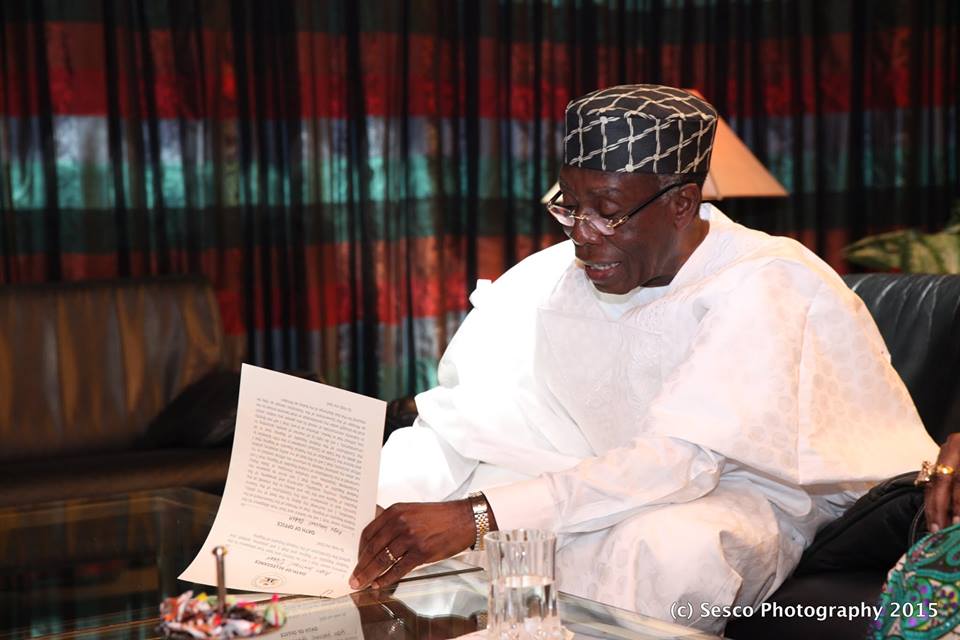Some good news could make you feel pain and anger. And this doesn’t necessarily make you a hater.
Here’s one example. Let’s say your name is Obiano. And your friend, let’s also call him Ambode, gets a pay raise, and you don’t. Now, Ambode does the kind of job you do, but your organization says it is not sure if you really do your work yourself.
And all these are happening under the management of a new MD, who you believe has a soft spot for Ambode. Though some members of your organization had earlier accused you of not doing your job yourself during the previous MD’s reign. Interestingly, the former MD, who I will simply refer to as Jonathan, had earlier told management that you did your job yourself and that your dues should be given to you ‘ASAP’.
But the new MD has done nothing about your promotion – even though this promotion would have spurred you to work harder. The new MD has every reason to drag his feet, if he wants to. Apparently, because some line managers insist that you are a cheat, with contentious evidence, of course. All the same, as an easy-going chap, you have already sent some congratulatory messages to Ambode. Ambode deserves his promotion, anyway.
Advertisement
All this explains how Anambra State might be feeling at the moment.
Modalities are being made to start paying Lagos State its 13 percent derivation from the oil produced in its backyard. Soon, a bill could be sponsored to amend the NDDC Act in order to include Lagos State as an oil producing state – it is actually its right.
A similar bill, sponsored by Senator Andy Ubah, to include Anambra State as a member of the NDDC was shut down in the Senate. The Senate believes that since Koji and Enugu are claiming ownership of the oil wells in the Anambra Basin [the name of the field currently producing oil], Anambra could not be made an oil producing state. Presently, the state does not get the 13 percent derivation.
Advertisement
In fact, neither Kogi nor Enugu gets this derivation. And there is no urgency to resolve this issue. All three states need this extra cash. And this might not even be an issue in the present government, despite all the cries from Anambra State.
Why? A few days ago, Alhaji Aliyu Mohammed, Chairman Indices and Disbursement Committee of the RMAFC remarked: ‘‘It is also important to state that the commencement of oil production from Aje oil field by Yinka Folawiyo Petroleum Company Limited is the first time oil is being produced outside the Niger Delta basin and, therefore, of a significance in diversifying the source of crude and gas production in the country.’’
Apparently, it has been forgotten that Anambra Basin was also producing oil. In fact, Anambra State has over 1 billion barrels of oil and well over 30 trillion cubic feet of gas under its soil.
Had it not been for the fall in oil prices, Orient Petroleum, the operators of OPLs 915 and 916, who started with about 3,000 bpd, was looking at scaling up to about 120,000bpd.
Advertisement
Orient Petroleum, which is promoted by indigenes of Anambra State, believes majority of the oil wells are well-located in Anambra State. At least, the chairman of the company, Emeka Anyaoku, believes this. Even Anambra State governor, Willie Obiano, believes the ownership tussle is politically motivated.
Every appeal to include Anambra State as an oil producing state has fallen on deaf ears. The speed Ambode’s letter to the federal government got replied shows that government can really resolve any issue, with the speed of light, if it wishes.
Hear Amobode: ‘‘Within a span of about 60 days we wrote our letter, and even before we wrote the letter, this technical committee was set up. It gladdens me to say that the institution works and is working for the good of Nigeria’’.
While it’s true that Lagos’s case might be straightforward, it is also evident that there was some concerted effort to make Lagos get what it deserves. Ndi Anambra would appreciate this kind of goodwill!
Advertisement
Even though there are ample evidence to suggest that Anambra owns most of the oil wells in contention, it will be unfair to say this categorically. Especially when the government, through the offices of the National Boundary Commission and the Surveyor General, has not said so. But a quick resolution of the distribution of the oil wells will do the states involved a lot of good – even if all three states involved share from the accrued 13 percent derivation.
Advertisement
Views expressed by contributors are strictly personal and not of TheCable.
Add a comment






